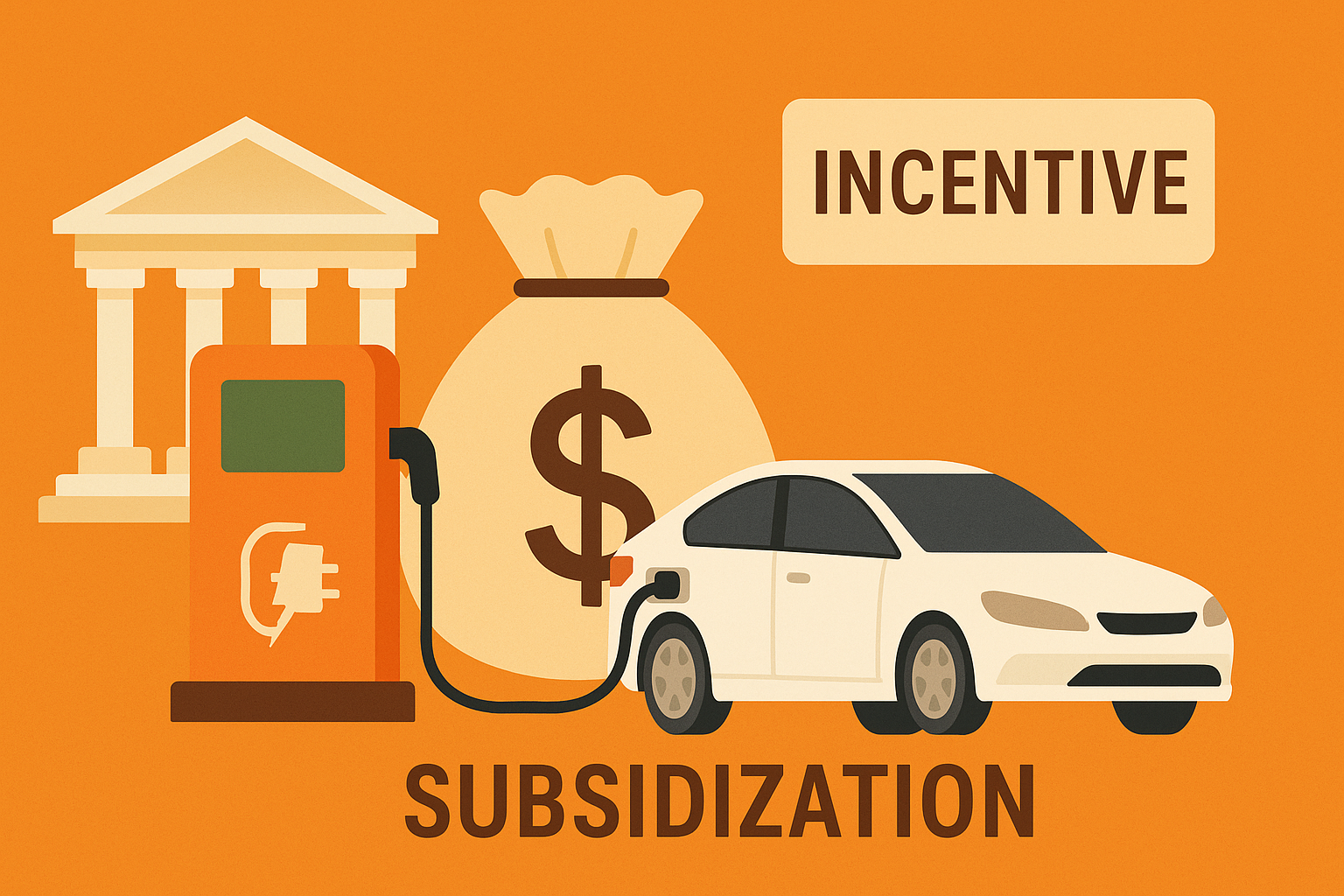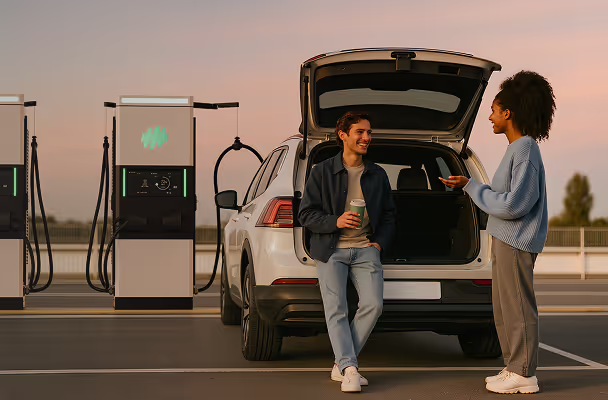Subsidization

What is Subsidization?
Subsidization in the context of electric vehicles (EVs) refers to financial support or incentives provided by the government or private organizations to reduce the cost of EVs and related infrastructure. This includes incentives for purchasing electric vehicles, rebates on EV Charging equipment, and funding for the installation of public charging stations. Subsidization makes EVs more affordable to consumers and helps accelerate the adoption of electric mobility by reducing the financial burden on both consumers and businesses.
Why Subsidization Matters
Subsidization is critical for accelerating the transition from internal combustion engine (ICE) vehicles to electric vehicles (EVs). EVs, although cheaper to operate, can have a higher upfront cost compared to traditional vehicles. Subsidies help offset these initial costs, making EVs more accessible to a wider range of consumers. For charging infrastructure, government incentives encourage businesses and property owners to install charging stations, supporting the expansion of the EV Charging network.
How it Works
Subsidization works by providing financial incentives or rebates for the purchase of electric vehicles, charging equipment, or infrastructure development. These subsidies can take various forms, such as direct cash rebates, tax credits, or grants. In some countries, EV buyers are eligible for a percentage discount off the vehicle’s price, while charging station operators may receive subsidies to lower installation costs. Governments often set criteria for eligibility, such as income levels or the type of EV being purchased, to ensure that the subsidies reach those who need them the most.
Key Technologies / Features
- Financial Incentives: Direct payments, rebates, or tax credits to reduce the upfront cost of purchasing EVs and charging equipment.
- Government Grants: Funding provided to businesses and municipalities to install EV Charging stations or renewable energy systems.
- Tax Exemptions: Some regions offer tax breaks for EV owners and businesses that use electric mobility solutions, including reduced registration fees or lower road taxes.
- Green Bond Financing: Some governments offer financial instruments like green bonds to help fund the infrastructure necessary for EV adoption.
Applications
- EV Purchases: Consumers who buy electric vehicles can receive direct subsidies or rebates, lowering the purchase cost.
- Charging Infrastructure: Local and national governments provide subsidies for businesses and municipalities to install public and workplace charging stations.
- Fleet Electrification: Businesses converting their vehicle fleets to electric models can receive financial support for both vehicle purchases and charging infrastructure installation.
- Renewable Energy Integration: Governments may provide subsidies for solar-powered charging stations, promoting the use of clean energy in EV infrastructure.
Benefits
Subsidization helps make EVs more affordable by lowering the initial cost barrier, encouraging more consumers to adopt electric vehicles. It also stimulates the growth of EV Charging networks by reducing the financial risk for private investors and businesses. Government-funded incentives help increase the supply and demand for EVs and related infrastructure, accelerating the transition to clean mobility.
Use Cases
In countries like Norway, subsidies have been instrumental in the widespread adoption of electric vehicles, with significant tax exemptions and purchase incentives. India’s FAME-II initiative is another example, where the government provides subsidies for the purchase of electric buses, two-wheelers, and charging infrastructure to support the transition to electric mobility.
📌 Callout Box:
Subsidization plays a crucial role in making EVs affordable and expanding charging infrastructure, helping accelerate the adoption of electric vehicles and sustainable mobility.




